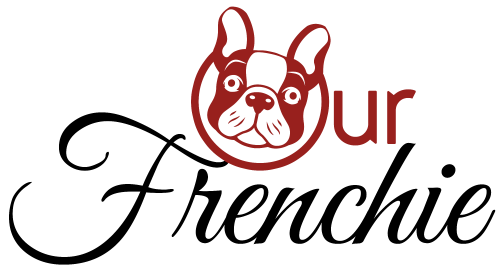About
Why Is My French Bulldog So Clingy?
Page Contents
French Bulldogs are beloved for their affectionate and loyal nature, often forming strong bonds with their owners. However, this endearing trait can sometimes manifest as clinginess, leaving many owners questioning why their furry companion is so attached. Understanding the reasons behind this behavior is key to ensuring a happy and balanced relationship. In this article, we’ll explore the factors contributing to a French Bulldog’s clinginess, from their social instincts and need for companionship to potential anxiety issues, providing insights and tips to help manage their loving yet sometimes overwhelming nature.
Understanding Your French Bulldog’s Nature
French Bulldogs are known for their affectionate and sociable nature, traits that frequently enough manifest as clinginess. This breed thrives on human interaction and forms strong bonds with their owners, making them loyal companions. Their history as companion animals, originally bred to be lap dogs for lace workers in France, has ingrained a deep-seated need for closeness and attention.
Understanding your French Bulldog’s behavior involves recognizing their need for social engagement. **French Bulldogs are highly social creatures** and can become anxious or distressed when left alone for extended periods. This is not just a quirk but a essential aspect of their temperament. They seek comfort and security in the presence of their human family, often following them from room to room and desiring constant companionship.
- **Strong Bonding:** French Bulldogs form deep emotional connections with their owners, often mirroring their moods and behaviors.
- **Pack Animals:** their instinctual nature as pack animals drives them to seek closeness and reassurance from their human “pack.”
- **Sensitive Temperament:** They are sensitive to changes in their environment and can become clingy as a response to stress or uncertainty.
Recognizing thes traits can help you better accommodate your French Bulldog’s needs, ensuring a happy and balanced relationship. Providing them with plenty of attention, mental stimulation, and physical activity can help mitigate their clinginess while strengthening your bond.
Common Causes of Clingy Behavior
- genetic Predisposition: French Bulldogs are known for their affectionate nature, a trait that has been selectively bred into them over generations.This inherent desire for companionship frequently enough manifests as clinginess, as they seek constant interaction and reassurance from their human family members.
- separation Anxiety: These dogs are prone to separation anxiety, which can result in overly clingy behavior.When left alone for extended periods, they may experience stress and anxiety, leading them to become more attached when their owners are present.
- Health Concerns: Sometimes,clinginess can be a sign of underlying health issues. If a French Bulldog suddenly becomes more attached than usual, it may be experiencing discomfort or pain. Regular veterinary check-ups are essential to rule out any medical conditions.
- Environmental Changes: Changes in the household,such as moving to a new home,the arrival of a new family member,or alterations in daily routines,can trigger clingy behavior. French bulldogs thrive on stability and may become more dependent during times of change.
- Lack of Mental Stimulation: These intelligent dogs require mental and physical stimulation. Without sufficient activities or interaction, they may seek constant attention as a way to alleviate boredom.
Recognizing Separation Anxiety Symptoms
french Bulldogs are known for their affectionate nature, but sometimes their attachment can indicate underlying separation anxiety. Recognizing the symptoms is crucial for addressing this issue effectively. **Excessive barking or whining** when you leave the room is a common sign. This vocalization often stems from their discomfort with being alone and can escalate if not addressed.
Another symptom to watch for is **destructive behavior**. If your French Bulldog chews on furniture or other household items in your absence, it might be their way of coping with stress. Similarly, **house soiling** can occur even in well-trained dogs when they’re anxious about being left alone.
- Clinginess or following you everywhere when you’re home.
- Restlessness or pacing, notably when you’re preparing to leave.
- Excessive drooling or panting, which can indicate stress.
Understanding these symptoms helps in taking proactive steps to alleviate your French Bulldog’s anxiety, ensuring a happier and healthier pet.
The Role of Socialization and Training
Socialization and training play a significant role in shaping your French Bulldog’s behavior, including their tendency to be clingy. **Early socialization** is crucial; it helps your dog develop the confidence to interact with different environments, people, and other animals. A well-socialized french Bulldog is less likely to exhibit anxiety-driven clinginess because they feel more secure in varied situations.
**Training** is equally vital in managing clingy behavior. Implementing consistent training routines can establish boundaries and help your French Bulldog understand when it’s appropriate to seek attention. Consider the following training tips:
- Teach them basic commands like “sit,” “stay,” and ”come” to build discipline.
- Encourage autonomous playtime with interactive toys to reduce reliance on your presence.
- Gradually increase the time they spend alone to help them become more cozy with solitude.
By combining socialization with effective training techniques, you can help your French Bulldog become a more balanced and independent companion, reducing their clingy tendencies while still maintaining a strong bond with you.
Creating a Comforting Environment
To ensure your French Bulldog feels secure and less clingy, it’s essential to cultivate a comforting environment tailored to their needs. Start by designating a cozy space in your home where your furry friend can retreat to whenever they feel anxious or overwhelmed. This can be a plush bed or a soft blanket in a quiet corner, away from high traffic areas. **Consistency** is key, so make sure this spot remains constant and is filled with their favorite toys or a piece of your clothing to provide additional comfort.
Consider the following tips to enhance their environment:
- **Soothing Sounds**: Play soft music or white noise to mask any unsettling noises that might cause your dog stress. This can help create a serene atmosphere.
- **Aromatherapy**: Utilize dog-safe essential oils, such as lavender or chamomile, to create a calming scent in their space. Ensure proper ventilation and monitor your pet for any adverse reactions.
- **Routine**: Establish a daily routine that includes regular feeding times, walks, and play sessions. Predictability can be very reassuring for your dog.
Remember, a well-adjusted French Bulldog is one that feels safe and loved in their environment. By paying attention to these details, you can definitely help reduce their clinginess while fostering a sense of independence and confidence.
Effective Strategies for Reducing clinginess
Addressing a French Bulldog’s clinginess requires a combination of understanding, training, and providing the right environment. here are some effective strategies to help your furry friend become more independent:
- Establish a Routine: Dogs thrive on consistency. By setting regular times for feeding, walks, and play, you create a sense of security that can reduce anxiety and the need for constant attention.
- Encourage Independent Play: Introduce toys that stimulate your dog’s mind and keep them occupied. Puzzle toys, treat dispensers, and chew toys can be great tools to engage your French Bulldog while teaching them to enjoy their own company.
- Gradual Desensitization: Practice leaving your dog alone for short periods, gradually increasing the time as they become more comfortable. Start with just a few minutes and work up to longer durations, always rewarding calm behavior with treats or praise.
- Positive Reinforcement Training: Use training sessions to build your dog’s confidence. Teach commands like ”stay” or “wait” to help them understand that being alone is okay.Reward them with treats or affection when they successfully follow commands.
- Socialization: Introduce your French Bulldog to new environments,people,and other animals.This exposure can definitely help reduce their dependence on you by building their confidence in varied situations.
By implementing these strategies, you can definitely help your French Bulldog develop a healthier level of independence while still maintaining a strong, loving bond. Remember, patience and consistency are key in guiding your pet towards a more balanced and less clingy behavior.
When to Seek Professional Help
While it’s common for French Bulldogs to be affectionate and seek attention, there are times when their clinginess might indicate underlying issues that require professional intervention. **Behavioral changes** such as excessive whining, destructive behavior when left alone, or sudden aggression can be signs that your dog is experiencing anxiety or distress. If these behaviors become frequent or intense, consulting with a veterinary behaviorist or a professional dog trainer can provide insights and solutions tailored to your pet’s needs.
It’s also important to consider **physical health issues** that might contribute to your French Bulldog’s clinginess. Conditions such as pain,discomfort,or neurological issues can manifest as increased dependency on their human companions. A thorough check-up with a veterinarian can rule out or identify medical problems that might be affecting your dog’s behavior.
- Seek help if your dog shows signs of separation anxiety.
- Consult a vet for any sudden behavioral changes.
- Consider professional training for persistent clinginess.
Ultimately, a professional can help identify the root cause of your French Bulldog’s clinginess and suggest effective strategies to address it, ensuring a happier and healthier life for both you and your furry friend.
Wrapping Up
understanding why your French Bulldog is clingy can enhance your bond and ensure their well-being.Whether it’s due to their affectionate nature, past experiences, or health issues, addressing their needs with patience and care is key. By providing consistent training, socialization, and plenty of love, you can help your furry friend feel secure and happy. Remember, their clinginess is often a testament to their deep attachment to you. Embrace it as part of the unique charm that makes French bulldogs such beloved companions.

